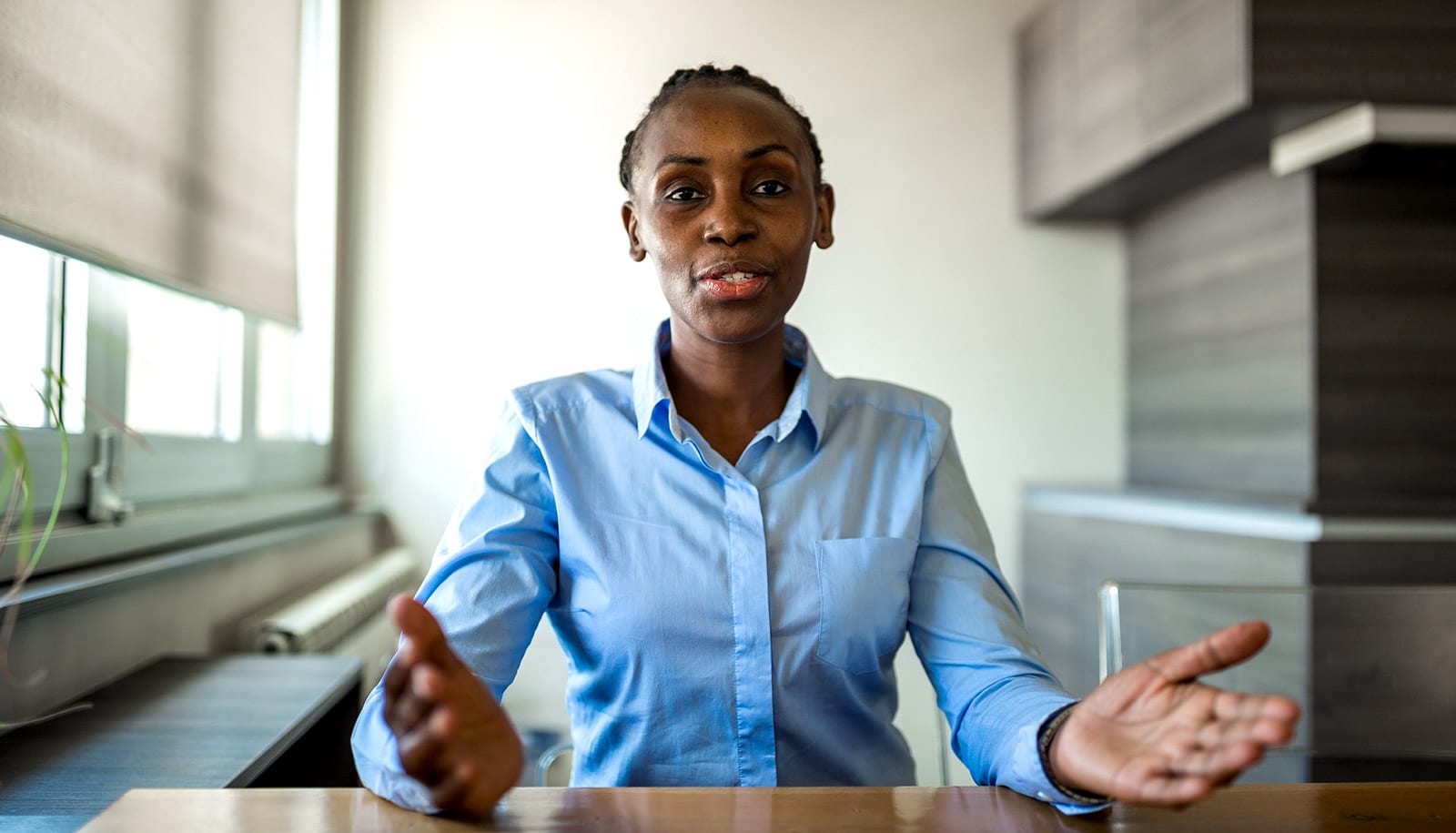
"Remote consulting has already become a necessity in the current climate, and video is one of the options for delivering this," Helen Atherton says. (Credit: Getty Images )
Patients and doctors seem open to telemedicine
New research finds that both physicians and patients in the UK are open to telemedicine. It's a timely finding as efforts to manage COVID-19 lead to more social distancing.

Both patients and doctors appear receptive to telemedicine, a new study shows.
While concerns about accessibility and technical challenges pose obstacles to wide adoption of the technology, researchers say that video consultations offer a viable means for maintaining continuity of care for at-risk groups.
It’s a timely finding as efforts to manage COVID-19 lead to more social distancing.
The research, which took place before the outbreak of COVID-19 and published in BJGP Open, explored both patients’ and clinicians’ experiences with telemedicine in primary care. The systematic review examined seven studies on video consultations published since 2010.
Video consultations involve a clinician consulting with a patient via an internet-based video link. In UK general practices this involves the use of web platforms similar to Skype but using secure technology that protects patient confidentiality.
Telemedicine has the advantage over telephone consultations of allowing doctors to pick up on visual cues. Doctors increasingly use them in primary care but until now they have not seen widespread use, researchers say.
Telemedicine works for routine visits
The new study found that, on the whole, evidence on patient and staff views on video consultations remains mixed, with some studies showing that patients are satisfied and others that they prefer a face-to-face consultation.
But while many view face-to-face consultations as the “gold standard,” particularly for chronic conditions, evidence shows that video consultations still allow patients to build rapport with their primary doctor and work fine for routine appointments.
“Our review included studies that showed that routine visits were a good use for video consultations, but that patients with long-term conditions are more likely to prefer face-to-face consultations,” says corresponding author Helen Atherton of Warwick Medical School.
“This is interesting because lots of the consultations in general practice are with people who are older and have long-term conditions, the same people who are most at risk in the current situation.
“Regardless, video was associated by patients with benefits such as convenience and avoiding a trip to the surgery, the latter being particularly beneficial at the present time. Now is a good time to try it if you want the reassurance of seeing your GP, and your practice is offering this option.”
Internet access is key
Clinicians showed more variety in how they felt about video consultation, depending on what it was used for and who with. The also expressed concerns that people who may not have access to the internet would disadvantage some patients who are not as “digitally literate.”
All general practices in the UK may not have the resources or the preparation adopt video consultations, the researchers say.
“Remote consulting has already become a necessity in the current climate, and video is one of the options for delivering this,” Atherton says.
“It is likely that telephone consultations will become the default option for most practices because they are already well-established ways to consult. But where practices can deliver video consultations, or arrange a video consultation set up, the current crisis has quickly become a stimulus to do this, and the longer it goes on for, the greater the need to be able to see patients as well as talk to them.
“Whether a patient can request video consultations or not is dependent on whether their general practice is offering this service. At the very least, practices will be offering a telephone consultation and patients can ask about the availability of video consultation services.
“I would advise them to keep themselves informed about what their general practice is offering, as general practices are rapidly setting up different types of remote consulting and this is an ever-changing situation.
“However, for any patient, regardless of age, if they have access to video consultation and want to do a routine consultation this is feasible and sensible.”
Source: University of Warwick
The post Patients and doctors seem open to telemedicine appeared first on Futurity.
Share this article:
This article uses material from the Futurity article, and is licenced under a CC BY-SA 4.0 International License. Images, videos and audio are available under their respective licenses.
Related Articles:
Many people may stick with virtual mental health care
Jan. 11, 2021 • futurity45% of adults over 65 lack account for COVID vaccine sign-up
Jan. 20, 2021 • futurityLinks/images:
- https://www.futurity.org/telemedicine-older-adults-physicians-2173882-2/
- https://doi.org/10.3399/bjgpopen20X101020
- https://www.futurity.org/medicaid-expansion-michigan-chronic-illness-2174752-2/
- https://www.futurity.org/smartphones-chemotherapy-cancer-1642712-2/
- https://warwick.ac.uk/newsandevents/pressreleases/video_consultations_with
- https://www.futurity.org/telemedicine-covid-19-physicians-2316042/
- https://www.futurity.org


